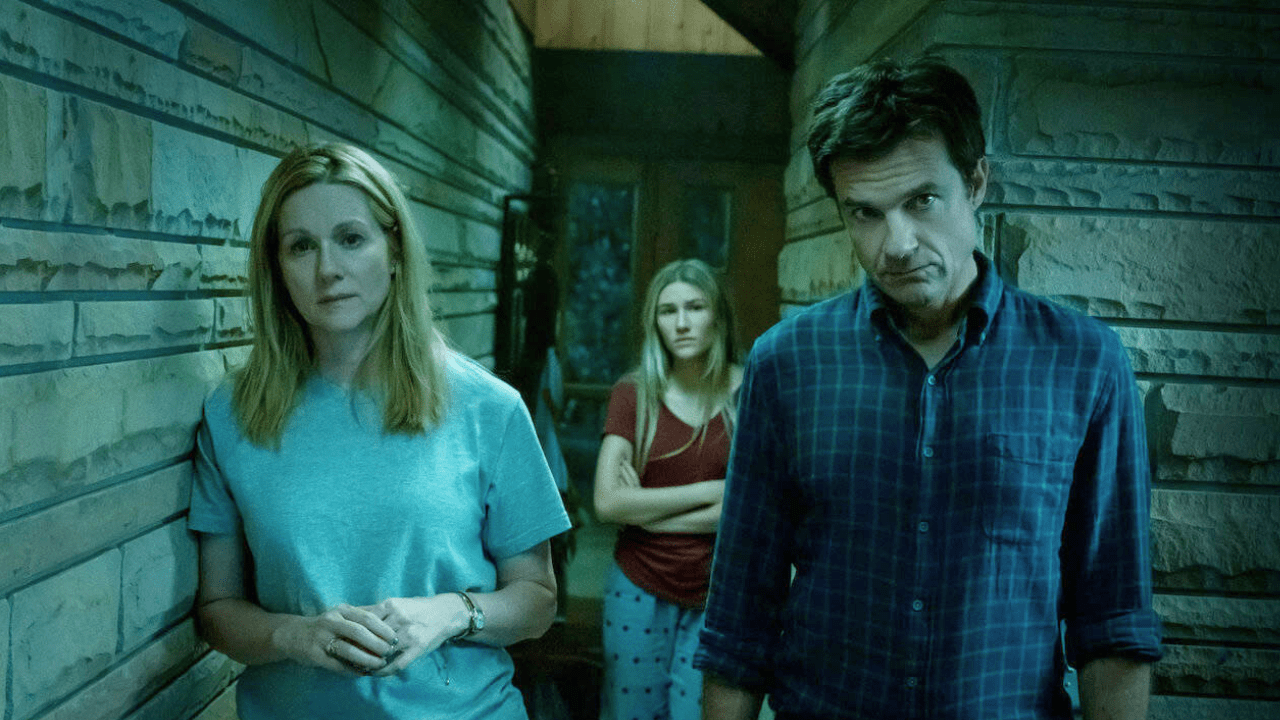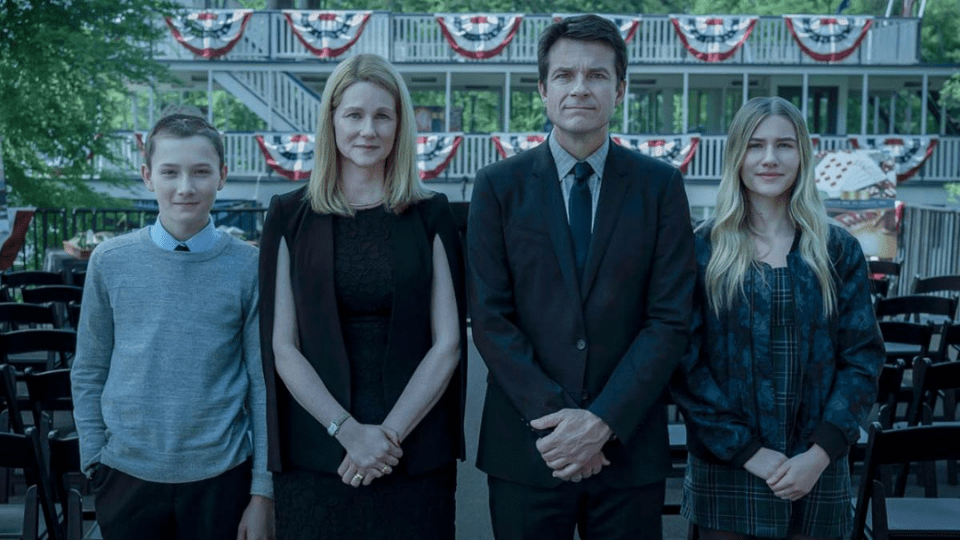For Jason Bateman’s Marty Byrde, the most important thing is no longer family or a breakfast, but the infinitely more pressing matter of not getting killed by a Mexican drug cartel. Ozark is what would happen if the Bluth family decided to sell their frozen banana stand, move to the Ozarks, and take up money laundering in a very, very big way.
When financial advisor Marty Byrde (played by Bateman) botches a money laundering scheme, he makes a daring, last-ditch offer to the Navarro Drug Cartel. He claims he has the perfect plan to set up an even bigger and this time, successful, laundering operation. This high-stakes compromise forces Marty to uproot his wife and two children from their Chicago home and transplant them to the Ozarks in Missouri, a remote summer vacation spot. Here, he attempts to build a web of seemingly reputable businesses, all while becoming deeply intertwined with the region’s existing criminal underbelly.
Season 3 of Ozark, which debuted on Netflix in April 2020, finds us catching up with Marty Byrde, now looking like a man completely exhausted. As a casino owner, he's a human pressure cooker, drained from the constant demands of bribing both the Navarro Cartel and the FBI. He's a man on the verge of total collapse, a far cry from the buttoned-down financial advisor he once was.
"I was trying to protect our family.”
“That is a tired, tired excuse.”
However, if you think Marty is the sole fearless and deceitful protagonist of Ozark, you’d be sorely mistaken. You'd be, in fact, spectacularly wrong.
That role belongs to Wendy Byrde. The cold-as-ice matriarch of the family, played with chilling precision by Laura Linney, has her sights set on a high-ranking role within the Navarro Cartel itself. And she has one simple rule: absolutely nothing and no one will get in her way.
This includes her troubled and erratic brother, Ben, played by the brilliant Tom Pelphrey. Ben's unexpected visit to the Byrde home threatens to tear a hole in their meticulously crafted charade, and he steps outside their carefully constructed narrative a few too many times for anyone’s comfort.
This storyline is one of the main reasons you should catch up with the series. It's a masterclass in character development, showcasing Wendy's chilling transformation. She becomes bolder and more brazen in her work with the Navarro family, actively shunning any form of emotional attachment and embracing the darker, more addictive side of her personality. Her brother Ben’s arrival serves as a stark, suburban reminder of the life Wendy could have chosen - a life of normalcy she now actively despises. She distances herself from that stereotypical female role and her conscience even further by physically sending Ben away when he stops taking his medication, knowing full well he will be dealt with for good.
Despite the tears and a surface layer of emotional turmoil for Wendy, her grief isn’t believable. She’s not truly upset because of the terrible fate Ben may face due to his transgressions. She’s upset because she’s the one who has to make the call, to do the dirty work. It's a devastatingly selfish act. Yes, Ben might be mentally ill, but watching this season, you'll be forced to conclude that Wendy is, too.
You will be haunted by the diner scene - a gut-wrenching moment of betrayal - and how completely matter-of-fact and emotionless the aftermath is for Wendy. It's a scene that perfectly encapsulates her descent into a ruthless pragmatism that eclipses all humanity.
And we haven’t even touched on the other character who will make you fall in love with Ozark this season: Ruth Langmore. Julia Garner plays a young woman who is one of a long line of Langmores to live in a trailer, feeling cursed by her family name in the Ozarks. Much like Ben and Marty, Ruth's character initially holds onto hope of distancing herself from her criminal roots, but she is also precariously balancing between good and bad decisions most of the time. Unsurprisingly, all three of them are usually toppled into the "bad" by Wendy.
Ozark is one of the most gripping series I’ve seen on Netflix, a chilling, twisting story that pushes the boundaries of the anti-hero trope. As Wendy Byrde herself says, "If you don’t move forward, you die."

